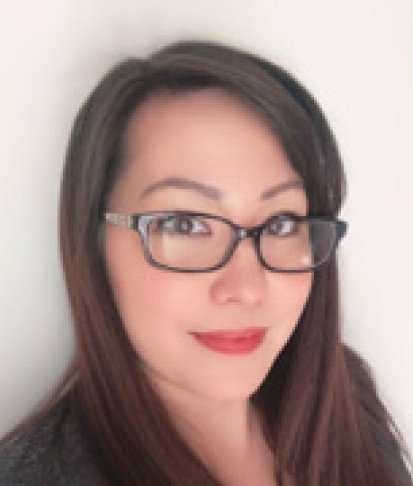For some people that are suffering from addiction, the prospect of seeking help may feel impossible due to the perceived high cost associated with rehab treatment. Those with low to no income and may not have access to healthcare insurance, and self-paying for addiction treatment may not be feasible.
- Attempting potentially harmful self-medication, such as self-detox or going cold turkey, in order to get over their substance use disorder is not advised. This can be potentially life-threatening, especially since detoxing from certain substances without medically assisted treatment (such as opioids, alcohol, and benzodiazepines) can cause serious withdrawal symptoms
- State-funded rehab facilities use money provided by the government and distributed by the state to provide addiction treatment services such as medication-assisted detox, residential rehab, outpatient treatment programs, and other facilities to those suffering from drug and alcohol addictions
- To make this process simple and accessible, SAMHSA provides a Directory of Single State Agencies (SSAs) for Substance Abuse Services that can direct to the nearest and most affordable treatment center
Free addiction treatment
Attempting potentially harmful self-medication, such as self-detox or going cold turkey, in order to get over their substance use disorder is not advised. This can be potentially life-threatening, especially since detoxing from certain substances without medically assisted treatment (such as opioids, alcohol, and benzodiazepines) can cause serious withdrawal symptoms. Even taking supplements or alternative treatments can be risky because many are not regulated or approved by the FDA.
Thankfully, there are options that exist for those who need addiction treatment but cannot afford it. In some cases, free treatments may be available to people, especially those with low income. For those who don’t qualify for these programs because of their income, it still may be possible to find sliding scale or reduced fee options, scholarship options, or deferred payment plans that make treatment possible.
How to find free addiction treatment
Finding free addiction rehab centers and treatment centers may feel daunting or impossible, but by using the Substance Abuse and Mental Health Services Administrations Directory of Single State Agencies (SSAs) it is easy to explore options and find a local rehab center that is low-cost or free. [1][2]
Another way to find free or reduced-cost addiction treatment is to visit your local DHHS, where you can:
- See if you qualify for Medicaid or Medicare
- Apply for Medicaid or Medicare (if eligible)
- Get information about local addiction treatment options
- Find out about financial assistance programs for treatment
- Check eligibility for other forms of financial assistance (like food, housing, etc.)
- Apply for other forms of financial assistance
- Speak to a case manager who can help you determine free/low-cost treatment options
State-funded addiction treatment
State-funded rehab facilities use money provided by the government and distributed by the state to provide addiction treatment services such as medication-assisted detox, residential rehab, outpatient treatment programs, and other facilities to those suffering from drug and alcohol addictions. Some of these programs accept Medicaid or Medicare insurance, while others will have a limited number of spots available for people who are uninsured or underinsured and qualify for certain income guidelines.
They are an ideal option for those looking to get help with a substance abuse problem but do not have the required income or access to suitable insurance to cover private rehab treatment. These treatment programs come in many forms all over the country and can include inpatient treatment programs, outpatient programs, and follow-up support in the form of therapy and medication.
Related: Outreach, Screening, Assessment, and Referral Services in Texas
Finding free rehab programs
In order to locate free rehab programs for the person suffering from addiction, one of their loved ones, or a career should get in touch with the local substance abuse, mental, or behavioral health service to find out what options are available.
To make this process simple and accessible, SAMHSA provides a Directory of Single State Agencies (SSAs) for Substance Abuse Services that can direct to the nearest and most affordable treatment center. State and government websites may also provide relevant information for these services, who is qualified, and how to apply. Visiting your local DHHS can also be a good step, as well as contacting local addiction treatment centers directly.[1][2] Finally, those in crisis should call 911 or go to their local emergency room in order to get urgent assistance.
What services are offered with free rehab treatment?
The treatment available depends on the level of funding the rehab center has, the community you live in, and whether these programs are full or have a waitlist. Most with urgent needs will be able to offer a medically supervised detox, outpatient care, and occasionally inpatient treatment programs. While state-funded and free programs may not offer the highest quality treatment or luxury accommodations, they are often better than not receiving treatment at all.
Most communities have a variety of inpatient, intensive outpatient, and outpatient programs that offer:
- Medically monitored and supervised detox
- Inpatient and residential addiction treatment
- Medication to reduce withdrawals or cravings
- Medication to reduce relapse risk
- Therapeutic group therapy for addiction
- Individual counseling with an addiction counselor
- DUI and DWI programs
- Free or low-cost support groups like AA, NA, or SMART recovery
Who qualifies for free drug rehab?
For most state-funded or free rehab treatment programs, those applying will need to meet certain qualifying factors in order to be accepted. These vary depending on the program, but may include:
- Income or financial guidelines with proof/verification
- Proof of residency
- Referral from a licensed medical or mental health professional
- Proof of insurance or lack of insurance
- Proof of employment status
- Agreement to follow the specific guidelines of the program
Free rehab for faith-based treatment
There are many faith organizations that run addiction treatment programs up and down the country. Some faith-based organizations will not be able to offer residential or detox treatment but will provide support groups and 12-step programs as well as outpatient treatment in some cases. As the name suggests, the majority of these programs will incorporate their specific faith traditions as part of treatment, and being part of the faith community may be required. Speaking to the local head of a specific faith community can often be the best way of finding the support required and can be a good way of being introduced into a program.
Alternatives for free addiction treatment centers
In some circumstances, free drug and alcohol addiction treatment may not be available or a person may not qualify for it, even if they can’t afford full treatment. In these cases, it may be necessary to seek other means of funding a treatment program. The below options can help those who require help with paying for treatment but who do not meet the criteria for free treatment.
Scholarships or grants
Certain organizations can offer scholarships for addiction treatment for those who can’t afford it on their own. It is advisable to research grants and scholarships for addiction treatment before committing to a center.
12-step programs or SMART Recovery
While 12-step programs, such as those used by Alcoholics Anonymous (AA), are not recommended as a sole method of treatment for addiction, they provide fantastic ongoing support for those in recovery as well as those who are suffering from substance use disorders but who may not be addicted. Those who want an alternative to 12-step groups could also consider SMART Recovery, a non-religious alternative to AA or NA.
Loans and finance plans
Most rehab centers will offer a financing option to pay for treatment over a period of time. Some loan companies will also specialize in loans for funding treatment, providing multiple options to make treatment more affordable.
Support from family and friends
Shame and fear of asking for support are some of the many reasons people don’t seek help for addiction. It is always advised to speak to trusted friends or loved ones about substance abuse problems as their understanding and support can help get people to commit to treatment. They may also be able to help with the cost of rehab if possible and could potentially offer a loan if they have the means to do so.
Final thoughts
The high cost of addiction treatment can be a major barrier for those who want or need addiction treatment, but cannot afford it. While insurance plans often provide at least some coverage for addiction treatment, those who are uninsured or who have high-deductible plans may be unable to self-pay. Looking into free and low-cost options in your community like those listed above can help these individuals begin addiction recovery. Visit our rehab directory to find free rehab treatment near you.




